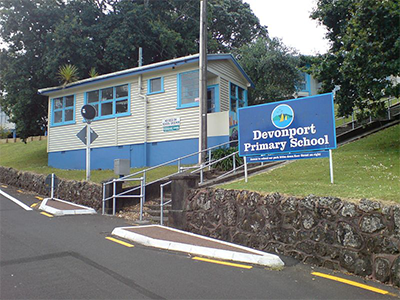Pre-school (also known as Kindergarten or Early Childhood Education):
A place for children to go when they are two to four years old, early childhood learning is mainly focused on providing basic skills for kids. All pre-schools offer ’20 hours free’ early childhood education (also known as ECE)
Kindergartens, also known as ‘Kindies in New Zealand, are extremely varied in their teaching methodology, size and locations across the country. Most children in New Zealand attend some form of early childhood education facility, with attendance numbers said to be as high as 95%. A crucial tip is to get your child registered for pre-school/Kindergarten as early as possible because demand is high and places are limited. According to the Ministry of Education (MOE), the NZ education system aims to develop young people who will be “a positive, confident and capable individual”, and ECE lays the foundation for a child’s success in the education system.
Te Whāriki is the Ministry of Education’s early learning curriculum. Te Whāriki links with the New Zealand Curriculum (NZC) and Te Marautanga o Aotearoa (TMoA). Te Whāriki means ‘the woven mat’ – this stands for the process of weaving your child’s educational experience and learning programme for your child to create their own story. It signifies a journey that is just beginning and attempts to weave together five key learning strands:
- Manaatua – wellbeing
- Manatangata – contribution
- Mana whenua – belonging
- Mana reo – communication
- Manaaotūroa – exploration
To enrol your child for early learning you will need to fill out an enrolment form which your chosen pre-school will give you. You will need to provide documents such as your child’s citizenship forms and medical information.
Primary school/Intermediate school:
The NZ primary school education system is set-up for children aged 5 to 13. At the age of 5 in New Zealand children can start school immediately and most choose to do so. A child’s primary school education ends when they reach age 12-13. Full primary school covers years 0 to year 8 (a child is year 0 when they start primary school between 1 July and 31 December). Contributing school is for children who are in years 1-6. Intermediate school is for children in years 7-8. Most schools are full schools (years 0-8) but some schools are dedicated Intermediates (year 7-8). Most children will live at home with their family and go to school while their parents work. School days are divided into lessons, morning tea, lessons, lunchtime, lessons, home time and afterschool activities. The school day normally spans 7 hours from 8am-3pm, with slight variations on this time depending on the school. There are many different types of school in NZ, these include; state schools, integrated schools, independent/private schools and kura kaupapa maori schools. To find a New Zealand school, we recommend you go to this page.
- Co-educational/Co-ed school – These schools cater for both sexes.
- Single-sex – These schools cater for just boys or just girls. There is an increasing trend for these schools to become co-ed from year 12-13.
- State schools – These are schools that are fully state funded, there is no legal requirement for parents of those children who attend to pay for costs. International students may have to pay a small fee. However, parents often do pay fees for uniform, school trips, stationery and others. A state-funded school is completely owned and administered by the Ministry of Education (MOE).
- Integrated schools – These are schools that were once private but have now become part of the state system. Teaching the New Zealand curriculum these schools also keep their own special character (usually a philosophical or religious belief).
- Independent/Private schools – The most expensive schools you can attend in New Zealand, they can cost up to $20,000 to attend, with other extra-curricular costs to be added. They are not run by the state and are instead governed by independent boards; however, they must meet certain standards to operate as a licensed education provider.
- Kura Kaupapa Māori – A state school where teaching the Māori language and the schools aims reflect the Te Aho Matua philosophy.
- Special schools – Provide specialist services for children with certain behavioural, sensory, intellectual or physical support needs.
- Home school – Children are schooled at home rather than a school environment, this happens when parents would prefer to teach their child at home or when the child is not enjoying their time at school. Home-schooling can be a great alternative.
To enrol your child at school you will need to fill out an enrolment form which your chosen educational provider will give you. You will need to provide documents such as your child’s citizenship forms, medical information and care agreements. Further information about enrolment be found here.
Who are iStudent Complaints and what can we help you with?
iStudent Complaints is an independent dispute resolution scheme established by the New Zealand Government. Our objective is to encourage swift settlement of contractual and financial disputes between international students and their providers in New Zealand.
As an independent and impartial service, we are not affiliated with any Education providers.
Why did we do this blog?
Even if we need to step in one day to help you resolve a dispute, we want you to enjoy studying and living in our amazing country as much as we do. To that end, we’ve created this content so that you may continue to explore and experience the best New Zealand can offer.
